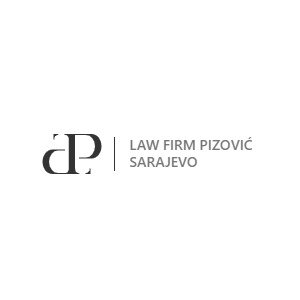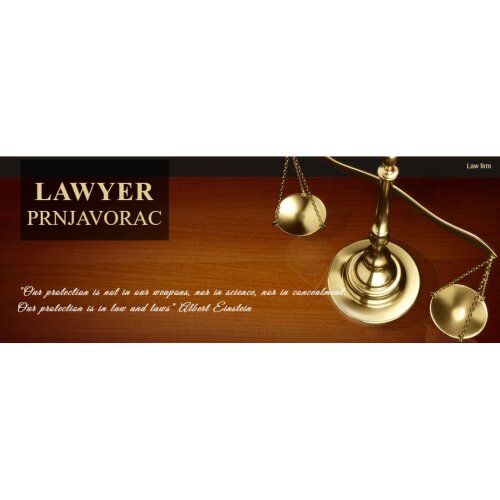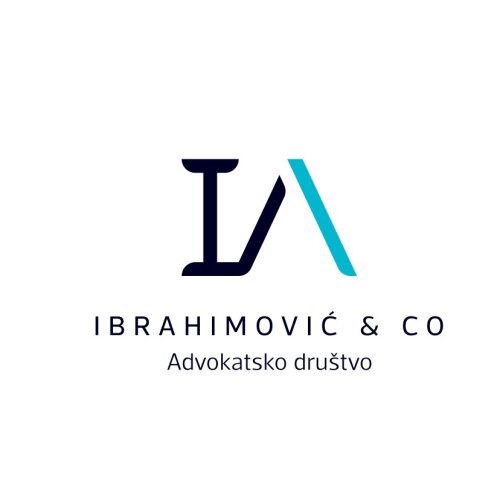Best Private Equity Lawyers in Bosnia and Herzegovina
Share your needs with us, get contacted by law firms.
Free. Takes 2 min.
Or refine your search by selecting a city:
List of the best lawyers in Bosnia and Herzegovina
About Private Equity Law in Bosnia and Herzegovina
Private Equity (PE) law in Bosnia and Herzegovina governs investments by private funds or individuals in companies that are not publicly traded. The sector has grown steadily as Bosnia and Herzegovina continues to develop its market economy and align with European Union standards. Private Equity transactions here often involve acquiring, financing, restructuring, and selling privately held businesses, with a strong focus on compliance with local legal and regulatory requirements. Understanding the legal landscape is crucial for both foreign and domestic investors seeking to maximize value and minimize risks.
Why You May Need a Lawyer
Engaging a lawyer experienced in Private Equity is essential for anyone considering investment, divestment, or partnership in Bosnia and Herzegovina’s private sector. Common scenarios include:
- Conducting due diligence on target companies
- Drafting and negotiating investment agreements
- Structuring transactions and financing arrangements
- Navigating complex regulatory requirements
- Handling mergers, acquisitions, or exits
- Resolving disputes or shareholder issues
- Ensuring compliance with anti-money laundering and competition laws
- Protecting intellectual property
- Assisting with tax planning and optimization
A lawyer can help mitigate risks, improve deal outcomes, and ensure all legal obligations are met throughout the investment life cycle.
Local Laws Overview
Bosnia and Herzegovina’s legal system is complex due to its division into two entities: the Federation of Bosnia and Herzegovina and Republika Srpska, plus the Brčko District. Each has its own company laws and regulatory bodies. Key considerations for Private Equity include:
- Company Formation: Investors must comply with the company laws of the relevant entity. There are different requirements for foreign versus domestic investors.
- Foreign Investment: Generally, Bosnia and Herzegovina welcomes foreign investment, but sectoral restrictions exist, and certain notifications or approvals may be necessary.
- Merger Control: Significant investments can trigger merger control review by competition authorities. Notification thresholds and approval processes must be observed.
- Tax Considerations: Each entity has its own tax laws affecting capital gains, dividends, and other investment returns. Bilateral treaties may help reduce double taxation.
- Contract Law: Investment and shareholder agreements are governed by local contract laws. Precise drafting is essential to protect investors' rights.
- Labor Law: Acquisition or restructuring may involve labor law issues including employee rights and collective agreements.
- Dispute Resolution: Choices include local courts or arbitration. Many PE investors prefer international arbitration for large or cross-border deals.
Local legal advice is highly recommended to navigate these frameworks effectively.
Frequently Asked Questions
What is Private Equity, and how does it work in Bosnia and Herzegovina?
Private Equity involves investing in privately held companies with the objective of growing their value and achieving profitable exits. In Bosnia and Herzegovina, such transactions are regulated by local company, contract, and competition laws.
Are there restrictions on foreign investors in Private Equity deals?
While Bosnia and Herzegovina encourages foreign investment, some sectors are restricted or require specific government approval. Legal guidance will clarify any limits that apply to your investment.
What are common legal structures used in Private Equity transactions?
Most investments use limited liability companies or joint stock companies. The chosen structure depends on deal specifics, tax implications, and regulatory considerations.
What due diligence is required before a Private Equity investment?
Comprehensive due diligence includes checking corporate records, financial statements, legal compliance, ownership rights, outstanding liabilities, and intellectual property.
How is an investment agreement typically structured?
Investment agreements outline the terms of the investment, governance rights, exit provisions, warranties, indemnities, and dispute resolution mechanisms. Local legal standards must be carefully followed.
Are there mandatory notifications or approvals for larger Private Equity deals?
Yes, investments exceeding certain thresholds may require competition authority notification and approval, especially if the transaction could affect market competition in Bosnia and Herzegovina.
What are the tax implications for Private Equity investments?
Investors may face corporate income tax, capital gains tax, and withholding taxes on dividends. Tax rates and exemptions vary by entity and may be affected by treaties with other countries.
How are disputes in Private Equity transactions resolved?
Disputes can be settled through negotiation, local courts, or arbitration. Many agreements specify arbitration, often with international arbitral institutions.
What are common exit strategies for Private Equity investors?
Exits typically occur through share sales, initial public offerings, or buybacks. The process depends on market conditions and prior agreement terms.
Do employment laws affect Private Equity transactions?
Yes, particularly during acquisitions or restructurings. Employee rights, contract obligations, and collective agreements must be considered to avoid legal issues.
Additional Resources
The following organizations and bodies can provide further guidance or support for those seeking legal advice in Private Equity:
- Foreign Investment Promotion Agency of Bosnia and Herzegovina (FIPA) - Offers information on investment opportunities and legal requirements
- Chambers of Commerce of both entities - Provides local business insights and contacts
- Ministry of Foreign Trade and Economic Relations - Regulates foreign investment and trade matters
- Competition Council of Bosnia and Herzegovina - Handles antitrust and merger control notifications
- Local law firms with expertise in Private Equity and cross-border deals
Next Steps
If you are considering engaging in a Private Equity transaction in Bosnia and Herzegovina, start by:
- Clarifying your investment objectives and target sectors
- Researching the relevant local laws and regulations
- Identifying reputable lawyers or law firms with Private Equity experience
- Consulting with accountants and tax advisors about the financial and tax aspects
- Requesting an initial consultation with a legal expert to discuss your needs and receive tailored advice
Due to the complexity of local laws and the importance of proper structuring, it is strongly recommended to seek professional legal counsel before committing to any investment or transaction in Bosnia and Herzegovina’s Private Equity sector.
Lawzana helps you find the best lawyers and law firms in Bosnia and Herzegovina through a curated and pre-screened list of qualified legal professionals. Our platform offers rankings and detailed profiles of attorneys and law firms, allowing you to compare based on practice areas, including Private Equity, experience, and client feedback.
Each profile includes a description of the firm's areas of practice, client reviews, team members and partners, year of establishment, spoken languages, office locations, contact information, social media presence, and any published articles or resources. Most firms on our platform speak English and are experienced in both local and international legal matters.
Get a quote from top-rated law firms in Bosnia and Herzegovina — quickly, securely, and without unnecessary hassle.
Disclaimer:
The information provided on this page is for general informational purposes only and does not constitute legal advice. While we strive to ensure the accuracy and relevance of the content, legal information may change over time, and interpretations of the law can vary. You should always consult with a qualified legal professional for advice specific to your situation.
We disclaim all liability for actions taken or not taken based on the content of this page. If you believe any information is incorrect or outdated, please contact us, and we will review and update it where appropriate.
Browse private equity law firms by city in Bosnia and Herzegovina
Refine your search by selecting a city.













